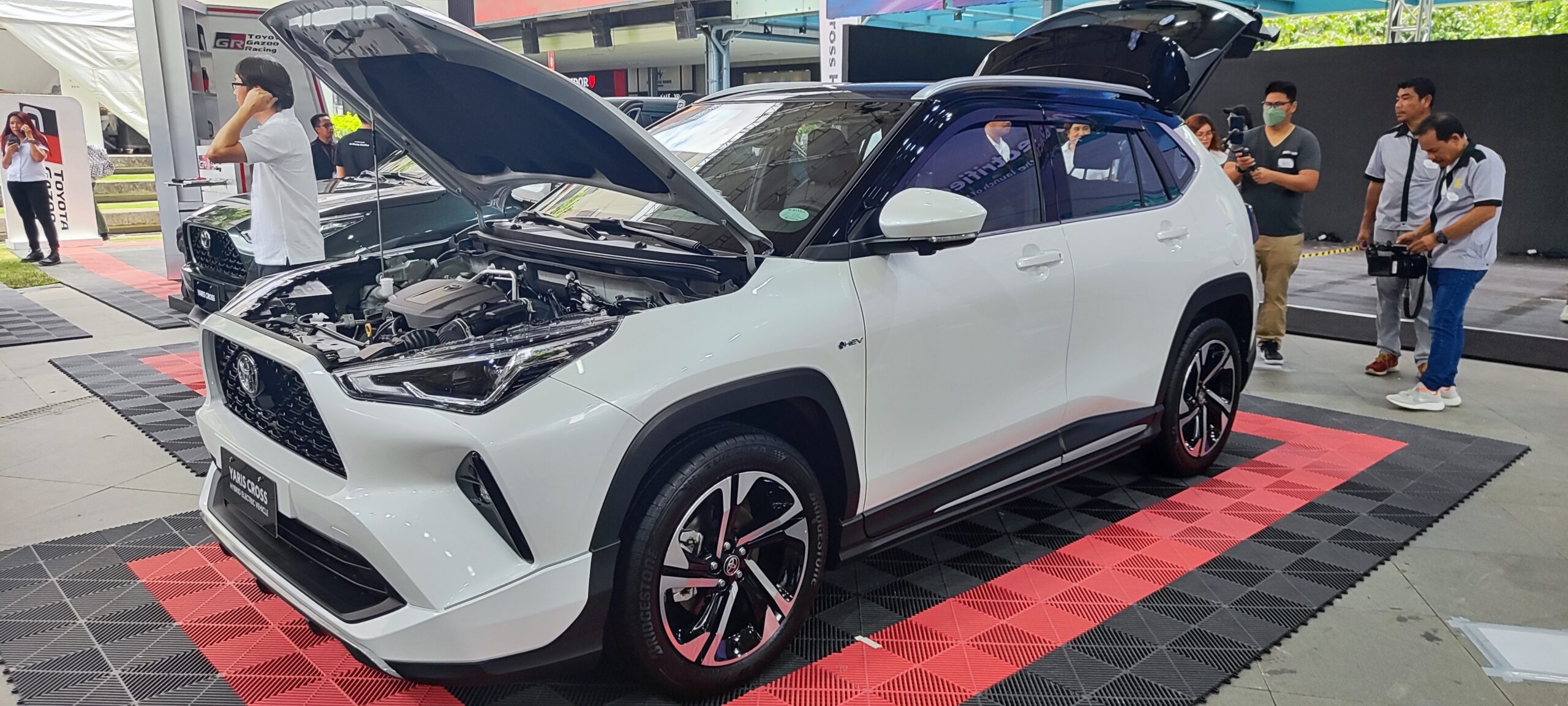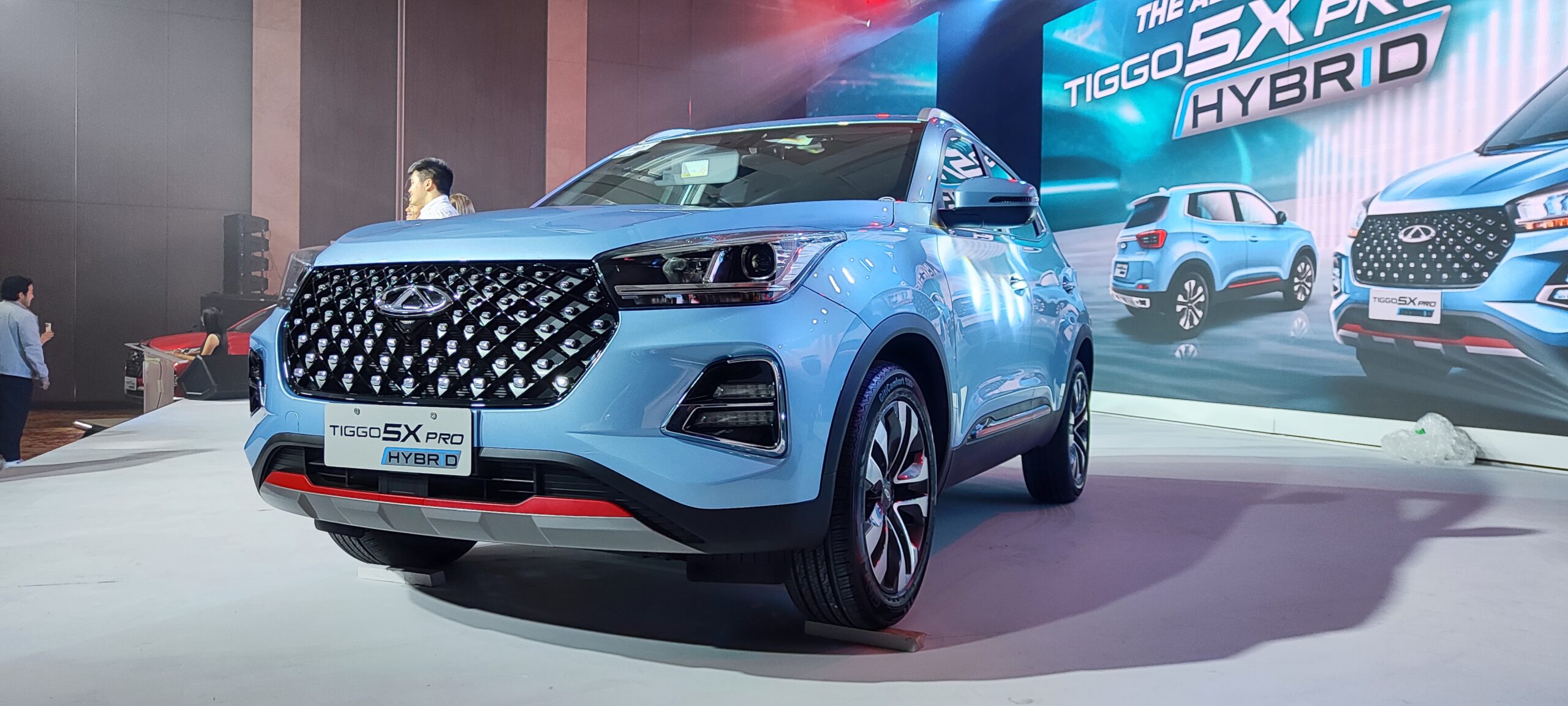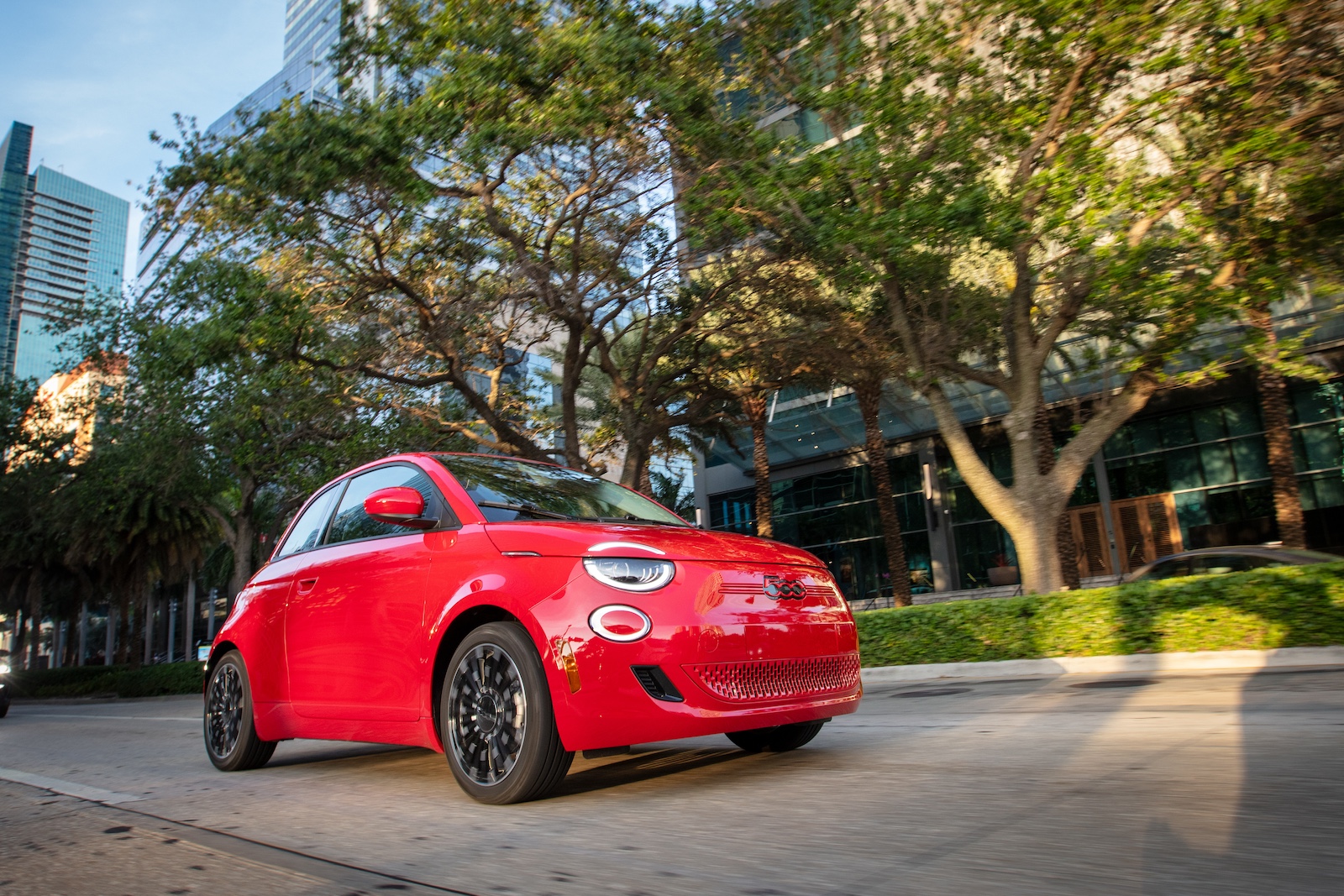
Two major car launches in Manila seem to affirm that carmakers are looking more at hybrids than full battery electric vehicles due, in part at least, to the lack of charging stations across the country.
Towards the end of this week, Toyota Motor Philippines’ Inc. (TMP) released its sixth hybrid vehicle, the Toyota Yaris Cross, adding it to the pairings of ICE and hybrid models in its local vehicle lineup. (That said, this is basically Toyota’s strategy everywhere.) Similarly, Chery Auto Philippines (CheryPH) last week released the Tiggo 5X and Tiggo 7 hybrids beside its ICE counterparts.
Chery and Toyota are separated in terms of thousands of vehicles sold. However, the two companies are approaching electrification in a similar fashion in the Philippines. Toyota has 34% market share in the country, or the equivalent of 174,000 cars in 2022. Chery grew 143% in the compact and mid-sized SUV markets, but is still much smaller. Both companies, however, have a similar approach to carbon neutrality, primarily because of the slow growth of the charging infrastructure in the country and continued market preference for ICE engines. There’s also a lack of strong EV or fuel economy mandates in the country.
Toyota Releases Yaris Hybrid
On one hand, Toyota sees growth markets for hybrids are motivated by utility and “life-enhancing technologies perfect for today’s drivers who pursue their various passions.” This means offering hybrid electric vehicle choices to its customers.
“In Toyota, we believe in a multiple pathway approach to achieve carbon neutrality. One of the ways we are empowering you, our customers, to help build a sustainable future is through electrified vehicles,” TMP President Atsuhiro Okamoto stated, adding that range anxiety is one of the primary reasons for its approach in this market.
“In the Philippines we recognize the strong need to offer more options because as of now the charging station networks are still developing,” Okamoto told CleanTechnica in a side interview. “We are confident in the actions of the private sector and government in terms of creating the infrastructure, but we also realize that we can’t wait to do our share to reduce the carbon emissions.” He also mentioned that the August 4 launch of the Yaris Hybrid was simultaneous in all of Toyota’s 72 dealerships nationwide.

“Toyota hopes to bring the electrified lifestyle even closer to more Filipinos quickly,” he added, noting that at P1,598,000 (~$28,700) for the top of the line model and P1,199,000 (~$21,500) for the base Yaris Hybrid, it is one of the most affordable “electrified” vehicles in the Philippines to date.
Chery’s Electric Strategy
CheryPH, on the other hand, which just released two mild-hybrids, the Tiggo 5X and Tiggo 7, is seeing a transitional phase in the market as a continuous adaptation to electrified vehicles.
“Our contribution to the electrification of the Philippine market will come in the form of a variety of electrified vehicles — battery electric vehicles, plug-in hybrids and mild hybrids.” Rommel Sytin, United Asia Automotive Group, Inc. (UAAGI) Chairman told CleanTechnica. “By offering all power options, we are able to give our customer the best choices to ensure we are constantly promoting electrification beside ICE engines — for now.”
The Chery 5X Pro, a compact crossover, costs P1,140,000 (~$20,500) and comes with a 1-million-kilometer engine warranty, five-year/150,000-km general vehicle warranty, three years of free preventive maintenance service (PMS), and three years of free roadside assistance.
While the updated Tiggo 7 Pro Hybrid, a larger SUV, shares the turbocharged 1.5-liter 4-cylinder engine paired with a 48-volt mild-hybrid system, putting out 154 horsepower and 230 Nm of torque, with a nine-speed continuously variable transmission (CVT). Chery claims the powertrain reduces emissions by 14 percent and cuts fuel consumption by 13 percent. The Tiggo 7 costs P1,350,000 (~$24,300).
“Tonight, Chery Auto Philippines begins a new era of change. We are embarking on a serious path in keeping the needs of our past, present, and future customers at the core of everything we do. We are serious about giving our customers a competitive end-to-end Chery ownership experience,” Sytin concluded.
Chery is China’s 9th leading automobile exporter and heavily invests in EV research and development. Most of its current lineup has an EV partner. In the Philippines, it introduced the Chery Arrizo 5e EV in 2021 at P1,900,000 (~$34,200). It competed with the Nissan LEAF, which back then cost P2,798,000 (~$50,380). It also has the Chery Ice Cream (marketed as the Jetour Ice Cream), which sells at P699,000 (~$12,600) and is the cheapest EV in the country now.
What do you think of the Toyota and Chery approaches to electrification in the Philippines?
I don’t like paywalls. You don’t like paywalls. Who likes paywalls? Here at CleanTechnica, we implemented a limited paywall for a while, but it always felt wrong — and it was always tough to decide what we should put behind there. In theory, your most exclusive and best content goes behind a paywall. But then fewer people read it! We just don’t like paywalls, and so we’ve decided to ditch ours. Unfortunately, the media business is still a tough, cut-throat business with tiny margins. It’s a never-ending Olympic challenge to stay above water or even perhaps — gasp — grow. So …





